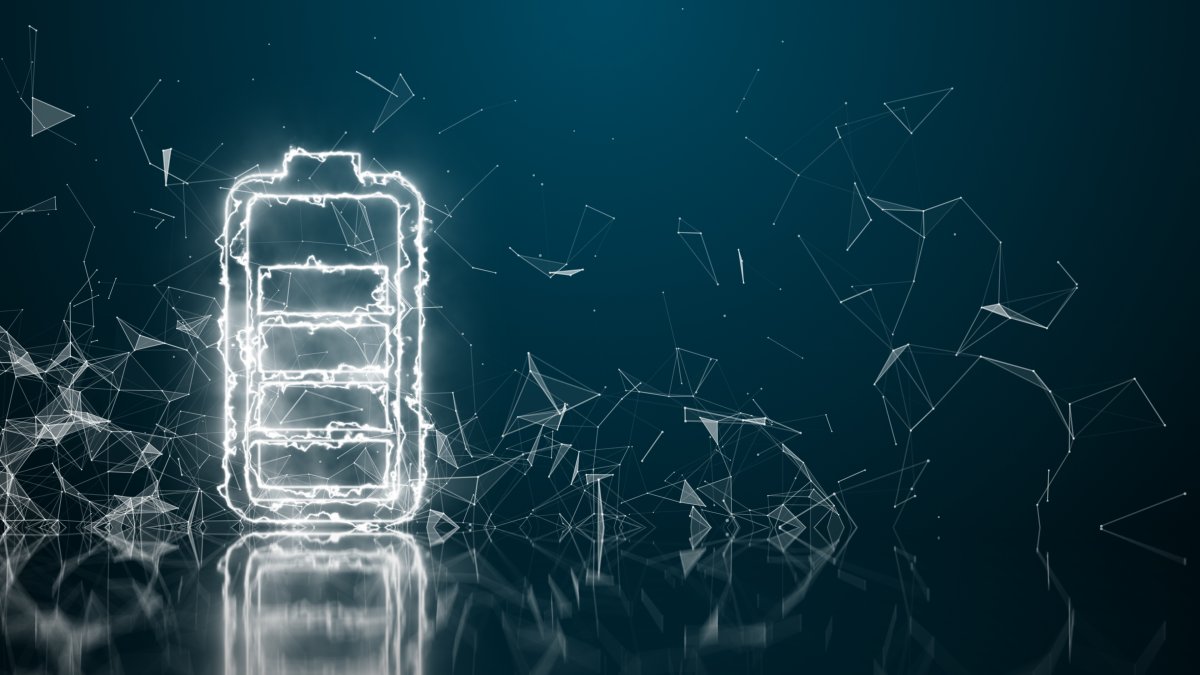Batteries store electricity directly, while electrolysers use it to produce hydrogen. Both processes are now combined in a new type of energy storage device developed by researchers led by Robert Hahn from the Fraunhofer Institute for Reliability and Microintegration IZM in Berlin. It consists of a half-cell of a zinc battery and an electrode at which either oxygen or hydrogen is formed alternately. The first smaller prototypes are already showing promising levels of efficiency. In addition, the raw materials used – steel, zinc, potassium hydroxide – are very cheap and available in large quantities.
Advertisement
“Our development lies somewhere between the battery and the electrolyser,” says Hahn. It is conceivable as a battery with hydrogen production or as an electrolysis that first stores energy and then releases hydrogen and electricity when needed. In addition, when charging, the zinc oxide dissolved in the liquid potassium hydroxide electrolyte releases its oxygen and is deposited as zinc metal on an electrode. At the same time, oxygen escapes from the gas electrode, which consists of sheet steel with a wafer-thin coating of nickel. When unloading, the zinc absorbs oxygen again and is deposited on the ground as a fine zinc oxide powder. On the other hand, water molecules are reduced at the gas electrode, i.e. they release their oxygen and hydrogen is formed.
efficiency of 50 percent
A first prototype is about the size of a small aquarium. “Our system achieves an efficiency of about 50 percent and is therefore exactly in the middle between battery and electrolysis,” says Hahn. Because if a complete cycle is considered from the electricity used to the electricity generated again, lithium-ion batteries achieve around 95 percent efficiency, and the generation and conversion of hydrogen in electrolysis and fuel cells to around 30 percent efficiency. If the zinc-hydrogen system is charged and discharged to a practical extent, they can withstand around 500 to 900 cycles.
According to Fraunhofer IZM and the associated company Zn2H2, the zinc-hydrogen storage system can be produced at a tenth of the cost of lithium batteries and feeds hydrogen into the energy cycle as required.
(Image: Zn2H2 GmbH)
Therefore, this hybrid storage cannot compete directly with the thousands of cycles of mature batteries. “But this stability is sufficient for long-term storage,” Hahn is convinced. For practical use, he could imagine a system of charged and uncharged zinc-hydrogen cells. Depending on the supply situation, this would then absorb excess electricity or release its stored electricity while producing hydrogen at the same time. The advantage over conventional electrolysers would be that expensive precious metals such as iridium or fluorine-containing polymers are not used. Since the hydrogen would only be generated when needed, there would be no need for intermediate storage – compressed under high pressure in gas tanks.
Hahn and his partners are now working on a larger demonstrator that can generate one kilowatt at a current of 50 amps. Both the cycle stability and the process control during charging and discharging should be optimized with it. Further scaling steps to larger memories could follow. But how and where exactly this type of energy storage will be used in the future cannot be said from today’s perspective. However, given the complexity of the energy landscape, suitable usage scenarios could certainly emerge. The company Zn2H2 – Zinc to Hydrogen, which is associated with the project, has already registered the first patents for this case.
Advertisement
also read
Show moreShow less
(jl)
To home page
